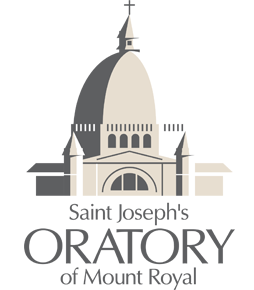The Readings of Saint Brother André
It has often been said that Saint Brother André was ignorant and that he could barely read and write. The reality is more complex. While he left behind very few writings, aside from some postcards to family members, he could certainly sign his name, and the few books found in his room after his death demonstrate his interest in pious readings. The fingerprints he left on certain passages of these books and the numerous intimate witnesses of his life confirm this. But what books are we talking about? Let’s discover them together.
According to his close friends and those who knew him well, Brother André’s favorite book was the Gospel [1]. He highly recommended it to those around him. The pages most often opened were those of the Passion, but also those of the parables of mercy: the prodigal son, the lost sheep, the unclean house that was cleaned and which one must still watch over (Luke 11:25); the miraculous catch of fish, the multiplication of the loaves.
However, if there is one saint who can be said to have influenced Brother André’s spiritual life, it is Saint Gertrude. The few books found in his room after his death confirm this. Two books about Saint Gertrude [2]’[3] are among them. The brother’s fingerprints smoothed over the pages of these books, along with the citation of certain passages to his friends, clearly indicate the significant influence this mystic had on the founder of Saint Joseph’s Oratory.
The Imitation of Christ was also part of Brother André’s small library. This book is displayed in one of the showcases of the Brother André Museum at the Oratory. It is the version translated by F. de la Mennais. The majority of Brother André’s readings, excluding community books, revolve around the Passion of Jesus or the lives of the saints.
In the eyes of many, Brother André was perceived as a poorly educated man who could barely sign his name. My research on Brother André confirms this. However, he was also an intelligent man, with a good memory and full of determination.
Despite his fragile health, Brother André worked hard and tirelessly. A man of few words, he spent his time talking to God and about God. Reading with difficulty, he nonetheless did not hesitate to allow himself to be inspired by certain books. Truly, Brother André was an extraordinary man, a man of contrasts. His faith guided his choices and his will. Everything seemed to orient him toward God.
- Alfred WEBER, « Le saint Évangile de Notre-Seigneur Jésus-Christ ou les Quatre évangiles en un seul, suivis des Actes des Apôtres, complétés et continués jusqu’à la mort de Saint-Jean ». Édition moyenne, Verdun, 95ième édit. (Exemplaire exposé dans la vitrine du Musée de frère André à l’Oratoire).
- « Prières de saint Gertrude ou Vrai esprit des prières que Jésus Christ lui-même a révélées pour la plupart à sainte Gertrude et à Sainte Mechtilde, Vierges de l’ordre de Saint-Benoît », traduites par le R.P. Denis, de la compagnie de Jésus, Paris-Lille-Tournai, H. et L. Casterman (s.d.), in-32, 448 p.
- LEDOS, « Sainte Gertrude » [Coll. Les saints]. 1er éd., Paris, Gabalda, 1904.





